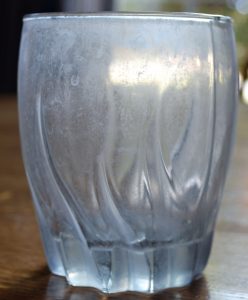Having access to pure, safe water is a crucial element of your health and safety. Sometimes, it’s easy to know if there’s a problem with your tap water. But other signs of water problems are far more subtle. The sooner you know about a water issue, the faster it can be resolved.
Common Signs of a Water Problem
You may not think that a cloudy glass of water or low water pressure are indications of serious issues, but they can be. We’ll look at the most common signs of water problems and their solutions.
Cloudy Appearance
Sometimes when water looks cloudy or foamy, it’s just due to an excess of air bubbles in your pipes. If the water sits long enough in your glass, the bubbles rise and dissipate, leaving you with clear water. In some cases, however, cloudiness (i.e. turbidity) is caused by impurities such as chemicals or pathogens. These contaminants can be dangerous, so it’s important to call an expert if your tap water is consistently cloudy.
Sulfurous Smell and Taste
Sulfur has that infamous “rotten egg” smell. If your tap water smells like it should belong in a Yellowstone geyser, it’s a good indication that it contains hydrogen sulfide. Water with this issue is unpleasant, and it can also be harmful to your health. There are water filters specifically designed to remove hydrogen sulfide from water.
Baking Issues
You may not think about using your baked goods as indicators of your home’s water quality, but some baking issues are caused by water problems. If you consistently get extremely flatbreads, pizza dough, or rolls, it could be a sign that excess chlorine in your water is killing the yeast. Most water treatment plants use chlorine as part of the disinfecting process for municipal water. However, sometimes there is excess chlorine left in the water, which results in a bleach-like smell. Most water filter models can remove chlorine.
Sediment or Dirt
If you have yellow or brown water coming from your tap that leaves sediment in your sink, it’s probably a sign of suspended particles of sand, dirt, or clay. In most cases, these tiny particles aren’t a threat to your health, but they can make cleaning difficult. Plus, it’s not pleasant to see sediment in the bottom of your drinking glass. Fortunately, it’s fairly easy to remove sediment with a point-of-use orwhole-house filter.
Mineral Buildup
In areas with hard water, sinks, tubs, and appliances can quickly develop a buildup of minerals. Also known as “mineral scale,” these deposits can be difficult to clean, especially in hard-to-reach places such as faucets and showerheads. Hard water can also leave mineral deposits in your home’s pipes. Over time, the buildup can corrode pipes and slow the flow of water through them. A reduction in your home’s water pressure can be an indication of hard water issues. The most common solution is a water softener.
Fishy Taste or Odor
Water that smells or tastes fishy may have an excess level of barium. This chemical can enter the water supply in areas where a lot of manufacturing or drilling occurs. High levels of barium can cause health issues including elevated blood pressure and muscle weakness. Cadmium is another potential cause of fishy-smelling water. It can enter the water supply through pipes that are exposed to industrial waste. A whole-house water filter can remove barium and cadmium from your tap water.
Green Water
Does your tap water have a greenish or bluish tint? This may indicate that it is contaminated with a higher-than-normal amount of copper. Corroded pipes can leach copper into the water. Small amounts of copper in your water are not problematic, but high concentrations can lead to health problems, including anemia and kidney damage. If you know that your home has copper pipes or aren’t sure what type of plumbing you have, it’s best to get your blue/green water tested for copper. A reverse osmosis water filter can remove excess copper.
Metallic Taste

Water that has a high concentration of iron, manganese, lead, and other metals often smells and tastes metallic or salty. These metal contaminants can be deposited in your water by rusty pipes. Some metals, especially lead, can cause significant health problems when ingested. An aerator-style water filter oxidizes iron and other metals to make them easy to remove.
Cleaning Problems
Do you get a slimy feeling after washing your hands? Maybe your shampoo or soap never lathers properly, or your glasses come out of the dishwasher with an unpleasant film on them. These problems are usually caused by hard water. A high concentration of minerals in your water can also make it difficult to clean soap scum off sinks, tubs, and other surfaces.
Appliance Wear and Tear
Mineral scale can prevent water from flowing through your appliances’ plumbing like it should. This reduces the efficiency of water heaters, dishwashers, washing machines, and ice makers. A whole-house water softener can remove excess minerals from your home’s water supply before it gets to your appliances.
Dr. Johns H2O Has the Solution to Your Water Problem
At Dr. Johns H2O, we’re passionate about providing clean, safe water to our North Carolina neighbors. When you call our team, we’ll come to your home and perform a water analysis, so you can get a comprehensive look at your water. We’ll identify any problems and create a customized solution featuring top-quality water softening and filtering products. To schedule your consultation, call our office at (336) 560-9540 or complete our online form below.
